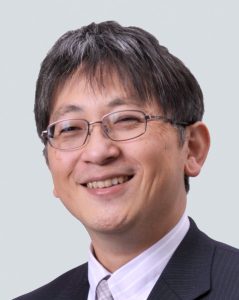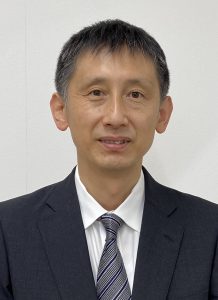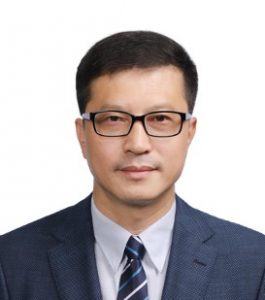Kyoto University
 Professor of Kyoto University (Director)
Professor of Kyoto University (Director)Masaki Takaoka
 Professor of Kyoto University (Vice-director)
Professor of Kyoto University (Vice-director)
Taku Fujiwara
Although rapid economic development in China has caused environmental issues pertaining to the atmosphere, waste and water, among other concerns; there has been a rapid advancement of mitigative measures in recent years. Recently, the Japanese government has announced a target of net-zero greenhouse gas emissions as well as a reduction of additional marine plastic litter pollution to zero, by 2050. In order to realize a low-carbon society with sound resource circulation in both Japan and China, cooperation between the Kyoto and Qinghua Universities is required; the targets can be achieved by effectively utilizing their resources and energy. The Cooperative Research and Education Center for Environmental Technology (CRECET) in Shenzhen, is an important research base for solving environmental issues in both countries. A collaboration between both universities on programs such as the double-degree Master’s, is expected to provide an excellent educational platform for training personnel.
Tsinghua University
 Professor of Tsinghua University (Director)
Professor of Tsinghua University (Director)
Yuntao Guan
Nowadays, climate change and sustainable development have become shared challenges for all humankind. As a convergence point for the leading academic strengths of China and Japan, the Tsinghua-Kyoto University Joint Research and Education Center for Environmental Technology has been rooted in the fertile ground of environmental technology. With talent cultivation and educational collaboration as its connecting thread, the Center has progressively built a multi-tiered, integrated educational system—spanning student exchanges, co-developed courses, joint supervision, and practical experience. It has thus become a vital bridge for young people from both countries to step beyond campus, engage with the world, and devote themselves to environmental protection. For countless young scholars, this center serves as both the starting point for stepping onto the international stage and a pivotal waypoint for anchoring professional aspirations and clarifying life direction.
Buliding on the academic foundations of Tsinghua University and Kyoto University, the Center focuses on the environmental field to drive interdisciplinary integration and innovation. Through the China-Japan Center platform, we cultivate a new generation of environmental scholars equipped with global perspectives, scientific rigor, and humanistic values. Young scholars will draw inspirations in dialogues of Eastern wisdom and hone their sense of responsibility while tackling global challenges. The Center should be more than a bridge for academic and educational exchange. It should also serve as a platform for dialogue on environmental culture and policies between China and Japan. We will promote deeper integration of industry, academia, and research, and contribute to Asia’s low-carbon transition making green the most distinctive hue of a community with a shared future for mankind.
With closer collaboration between our two universities, we will further consolidate the foundation of cooperation and strengthen joint talent development mechanisms. By actively engaging enterprises, governments, and all sectors of society, we will build the Center into a high-level open platform that connects industry and education while integrating academia with society. We will continuously amplify the synergistic effects of university collaboration, youth development, and industrial growth, evolving from “win–win” to “win–win–win” and creating a new vision of shared prosperity.
 Associate Professor of Tsinghua University (Vice-director)
Associate Professor of Tsinghua University (Vice-director)
Matteo Convertino
The Cooperative Research and Education Center for Environmental Technology (CRECET) carries a long-standing tradition of research, education, and industrial application in environmental science and engineering. Today, the grand challenges facing planet Earth are intensifying at an unprecedented pace, driven by increasingly interwoven interactions between natural and anthropogenically modified ecosystems, natural biomass and anthromass, which are collectively reshaping planetary function.
My research, and my contribution to the Center as Vice Director, align closely with the mission of CRECET. This alignment is grounded in the integration of advanced environmental and ecological systems science, engineering design, and data-driven computational decision frameworks to address coupled climate–water–biodiversity challenges. A central component of this work is the development and application of nature-based and nature-inspired technologies, guided explicitly by ecosystem function and dynamics. Through the formulation of network-based ecohydrological models, ecosystem fitness indicators, and nature-inspired engineering strategies, the proposed research provides quantitative tools to assess, forecast, and design resilient environmental systems across terrestrial, freshwater, and coastal domains. These approaches explicitly account for future climate conditions and ecosystem functioning, positioning nature as a core component of broader infrastructural and socio-environmental design.
This research direction directly supports CRECET’s emphasis on sustainable environmental technologies, risk-informed adaptation, and the translation of scientific knowledge into actionable solutions at both local and planetary scales. By bridging fundamental understanding of environmental and ecological processes with applied ecosystem engineering—particularly in relation to climate extremes, water stress, biodiversity conservation, and restoration design—my work offers a strong and natural platform for joint Tsinghua–Kyoto collaboration in education, methodological innovation, and real-world implementation across Asian and global ecosystems.
This vision further opens opportunities for collaboration with other key institutes and programs at both Kyoto University and Tsinghua University, including those focused on natural disaster prevention, bioinformatics, ecology, public health, urban planning and architecture, and computational sciences.
It is timely to advance an engineering approach that can anticipate and guide the evolving interactions between ecology and the environment—an approach that senses and respects natural boundaries beyond administrative divisions of the world. In this framework, technology, models, and eco-environmental data are integrated into shared platforms and strategies that connect universities, industry, and government, enabling coordinated and effective responses to environmental change.







